2019 Lectures |
Lunch: 12:00 pm
Lecture: 12:15 - 1:15 pm
Hudson Webber Cancer Research Center, Second Floor, Wertz Auditorium
4100 John R. Street, Detroit, MI 48201
New Insights into the Mechanisms Underlying Cellular Senescence
Xiao-Fan Wang, Ph.D.
Donald and Elizabeth Cooke Professor of Cancer Research
Duke University School of Medicine
Host: Qing-Sheng Mi
Henry Ford Health System
-
 Speaker Profile Speaker Profile
Dr. Wang is an outstanding scientist who has been devoted nearly three decades to studying the signaling mechanisms of a wide range of cellular activities, including proliferation, differentiation, and apoptosis, with a focus on TGF-β. His group has made major contributions to the understanding of DNA damage and replication stress checkpoint signaling by cloning and studying the human DNA repair protein Rad17. Additional work of his lab extends into the areas of determining the functions of microRNAs and mechanisms associated with tumor microenvironment, metastasis and therapy resistance. More recently, his group initiated a new line of work to investigate the mechanisms of the initiation and maintenance of cellular senescence.
|
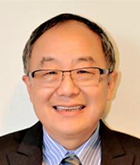
|
Lunch: 12:00 pm
Lecture: 12:15 - 1:15 pm
Hudson Webber Cancer Research Center, Second Floor, Wertz Auditorium
4100 John R. Street, Detroit, MI 48201
Development and Function of Natural Killer T Cells:
An Innate-like Lymphocyte Population
Mitchell Kronenberg, Ph.D.
President and Chief Scientific Officer
La Jolla Institute for Immunology
Host: Qing-Sheng Mi
Henry Ford Health System
-
 Speaker Profile Speaker Profile
Dr. Kronenberg is a renowned scientist and one of the most highly cited immunologists in the world. He has made major contributions to NKT cell and T cell biology and mucosal immunology, and has published articles in a large number of preeminent scientific journals. Over the years, Dr. Kronenberg has received many major awards, including a prestigious Merit Award for scientific achievement from the National Institutes of Health, the Distinguished Service Award by the American Association of Immunologists. He has also been a Burroughs Wellcome Fund Visiting Professor at Harvard University, delivered the Joseph S. Ingraham immunology lecture at the Indiana University School of Medicine and has been elected a fellow of the American Associations for the Advancement of Science as well as most admired CEO by the San Diego Business Journal.
|
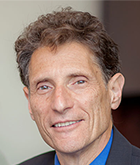
|
Lecture: 3:30 - 5:00 pm
Schaap Lecture Hall, Chemistry Building, 5101 Cass Avenue, Detroit, MI 48202
Transcriptional and Epigenetic Regulation in Cancer and Cancer Immunotherapy
Anjana Rao, Ph.D.
Professor
Pfizer Endowed Chair in Cancer Immunology and Oncology
Division of Signaling and Gene Expression
La Jolla Institute for Immunology
Member, National Academy of Sciences
Host: Ashok Bhagwat
Wayne State University
-
 Speaker Profile Speaker Profile
Dr. Rao is a world-renowned scientist and a member of the National Academy of Sciences. She made fundamental contributions to immunology and molecular biology by identifying important regulators of T cell signaling and differentiation at both the genetic and epigenetic levels, and showing how they influence immune responses.
After many years as a faculty member at the Harvard Medical School and the Immune Disease Institute in Boston, she joined the La Jolla Institute in 2010. Her current research continues to focus on characterizing the molecular mechanisms that underlie signaling activity and gene expression in T cells. She is a member of numerous advisory panels, and has received many major prestigious awards.
|
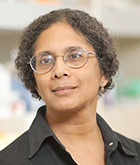
|
Lunch: 12:00 pm
Lecture: 12:15 - 1:15 pm
Hudson Webber Cancer Research Center, Second Floor, Wertz Auditorium
4100 John R. Street, Detroit, MI 48201
Sexual Dimorphism in Immune Responses and Its Role in Autoimmunity
Johann Gudjonsson, M.D., Ph.D.
Arthur Curtis Professor of Skin Molecular Immunology
Frances and Kenneth Eisenberg Emerging Scholar
Associate Professor
Department of Dermatology
University of Michigan at Ann Arbor
Host: Qing-Sheng Mi
Henry Ford Health System
-
 Speaker Profile Speaker Profile
Dr. Gudjonsson's research has been focused on the genetic etiology and immune-pathogenesis of cutaneous inflammation. He has been studying the molecular basis of cutaneous inflammation, with a focus on diseases such as psoriasis, and connective tissue diseases. Another major focus in his laboratory is on the molecular basis for sex-bias in autoimmunity.
He has published over 100 peer reviewed papers in numerous high impact journals such as Nature Genetics, Nature Immunology, Nature Communications, Journal of Clinical Investigation, and Journal of Investigative Dermatology.
|
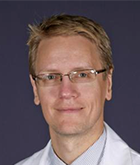
|
Lunch: 12:00 pm
Lecture: 12:15 - 1:15 pm
Hudson Webber Cancer Research Center, Second Floor, Wertz Auditorium
4100 John R. Street, Detroit, MI 48201
NKT Cells: Rare Cells with General Applications
for Vaccine Development
Luc Teyton, M.D., Ph.D.
Professor
Department of Immunology and Microbial Science
Director
TL1 Education, Scripps Research Translational Institute
The Scripps Research Institute
Host: Qing-Sheng Mi
Henry Ford Health System
-
 Speaker Profile Speaker Profile
Professor Teyton is the Chair of the Department of Immunology and Microbial Science at the Scripps Research Institute. He has made important contributions to immunology, including the determination of the function of the MHC class II-associated invariant chain, expression of the first recombinant soluble and secreted ab T cell receptor, crystalization and determination of its structure alone and in complex with its peptide-MHC ligand, elucidation of the structure and function of MHC class II molecules, the presentation and recognition of lipids, and the immunological mechanisms leading to autoimmunity.
Professor Teyton has authored articles in many eminent science journals, such as Nature, Science, Nature Medicine, Nature Immunology, Nature Biotechnology and Immunity. He also served as the Chairman of the Scientific Advisory Board at Abivax until June 2018 and serves as a member of Abivax's scientific advisory board.
|
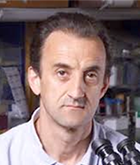
|
Lecture: 11:30 am - 12:30 pm
Scott Hall, Room 2268
540 E Canfield, Detroit, MI 48201
Spatial Heterogeneity in HSV-2 Tissue-Resident
Immunity
within Infection Micro-Environments
Joshua Schiffer, M.D.
Associate Member
Fred Hutchinson Cancer Research Center
Associate Professor,
Department of Medicine, University of Washington
Host: Philip Pellett
Department of Biochemistry, Microbiology and Immunology
Wayne State University
|
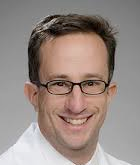
|
Lunch: 11:45 am
Lecture: 12:15 - 1:15 pm
Hudson Webber Cancer Research Center, Second Floor, Wertz Auditorium
4100 John R. Street, Detroit, MI 48201
A Novel Approach to Rejuvenate Endogenous Treg Function
in the Treatment of Autoimmune Diseases
E. Garrison Fathman, M.D.
Professor of Medicine (Immunology and Rheumatology)
Director, Center for Clinical Immunology
Chief, Division of Immunology and Rheumatology
Stanford University School of Medicine
Host: Harley Tse
Department of Biochemistry, Microbiology and Immunology
Wayne State University
-
 Speaker Profile Speaker Profile
Dr. Fathman has been a leading figure in clinical immunology and has made fundamental contributions to the cellular and molecular understanding of T cell function. He has published numerous articles across the world’s top scientific journals, such as Nature, Science, Cell, New England Journal of Medicine, Nature Immunology, Nature Medicine, and Immunity. He has also been in the leadership role of many prestigious international organizations, such as being the founder and the first President of the Federation of Clinical Immunology Societies. His lab recently discovered a novel pathway in Treg IL-2R signaling controlled by GRAIL. By targeting the relevant pathway defect in human autoimmune diseases, his group was able to restore immune regulation and block progression of disease in animal models of autoimmunity. He recently spun a company out of Stanford to develop this therapy.
|
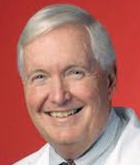
|
Lunch: 11:45 am
Lecture: 12:15 - 1:15 pm
Hudson Webber Cancer Research Center, Second Floor, Wertz Auditorium
4100 John R. Street, Detroit, MI 48201
Immune Drug Discoveries at Pfizer
Ethan M. Shevach, M.D.
Senior Investigator
Chief, Cellular Immunology Section
National Institute of Allergy and Infectious Diseases
National Institutes of Health
Host: Eric Sebzda
Department of Biochemistry, Microbiology and Immunology
Wayne State University
-
 Speaker Profile Speaker Profile
Dr. Ethan Shevach is Head of the Section of Cellular Immunology at NIAID. He has served as the Editor-in-Chief of the Journal of Immunology (1987-1992) and of Cellular Immunology (1996-2007). His groundbreaking research on regulatory T cell biology has garnered him numerous awards including the William B. Coley Award for Distinguished Research in Basic and Tumor Immunology (2004), a Distinguished Service Award (The American Association of Immunologists), and a Distinguished Alumnus Award (Boston University Medical School). Dr. Shevach has published nearly 400 peer-reviewed publications in premier scientific journals and is one of the most highly cited immunologists in the world.
|
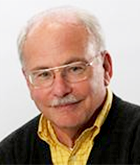
|









 Speaker Profile
Speaker Profile